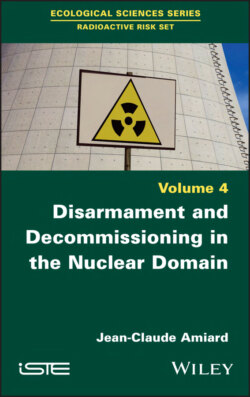Читать книгу Disarmament and Decommissioning in the Nuclear Domain - Jean-Claude Amiard - Страница 38
1.6.2. NGOs and the Nobel Peace Prize
ОглавлениеThe Nobel Prize in Physics has been awarded to more than 30 nuclear physicists and the Nobel Prize in Chemistry has been awarded to about nine nuclear chemists, as well as a Nobel Prize in Physiology, for their scientific work in the nuclear field [AMI 13].
The idea that the use of nuclear weapons could lead to catastrophic consequences remains a basis for their deterrent effect. The horror experienced by the victims of the Hiroshima and Nagasaki bombings was tangible proof of this. The Norwegian jury for the Nobel Peace Prize has also honored many personalities and organizations.
The first laureates to be rewarded were American chemist and physicist Linus Carl Pauling (in 1962), for his commitment against nuclear weapons testing; the Japanese Prime Minister Eisaku Sato (in 1974), for his renunciation of the nuclear option for Japan; the physicist Andrei Sakharov (in 1975), notably for his commitment to disarmament; the diplomats Alva Myrdal and Alfonso Garcia Robles (in 1982), for their “central role” in disarmament negotiations at the UN.
In 1985, the International Physicians for the Prevention of Nuclear War (IPPNW) was recognized for “services to humanity” in disseminating information about the catastrophic consequences of nuclear war, and in 1995, the NGO Pugwash and Jozef Rotblat were recognized for “their efforts in reducing the role of nuclear weapons in international politics and, in the long term, to eliminate them”. Still on the theme of abolition, the Nobel Committee provided a powerful sounding board for President Obama’s Prague speech in 2009, in which he shared his vision of a “world without nuclear weapons” [DEC 17].
In 2005, the Nobel Peace Prize was awarded to the International Atomic Energy Agency (IAEA) and to Mr. El Baradei, its director at the time, “for their efforts in preventing the use of nuclear energy for military purposes”.
Finally, in 2017, the anti-nuclear NGO ICAN, which used the theme of the consequences of a nuclear war, saw its action rewarded with the Nobel Peace Prize, a few months after the adoption of the Treaty on the Prohibition of Nuclear Weapons (NPT). However, the concrete benefits of this treaty for international peace and security are much less obvious than the risks it presents of blocking any progress in nuclear disarmament [DEC 17].
In addition, the “Don’t bank on the bomb” project reflects the NGOs’ search for other ways to delegitimize nuclear weapons. This initiative, implemented by the Netherlands-based NGO PAX, establishes a ranking of companies and investments in the field of nuclear weapons in an annual report, denouncing the financial institutions (“Hall of shame”) investing in the 27 companies identified as being involved in the production and maintenance of nuclear weapons [DEC 17].
